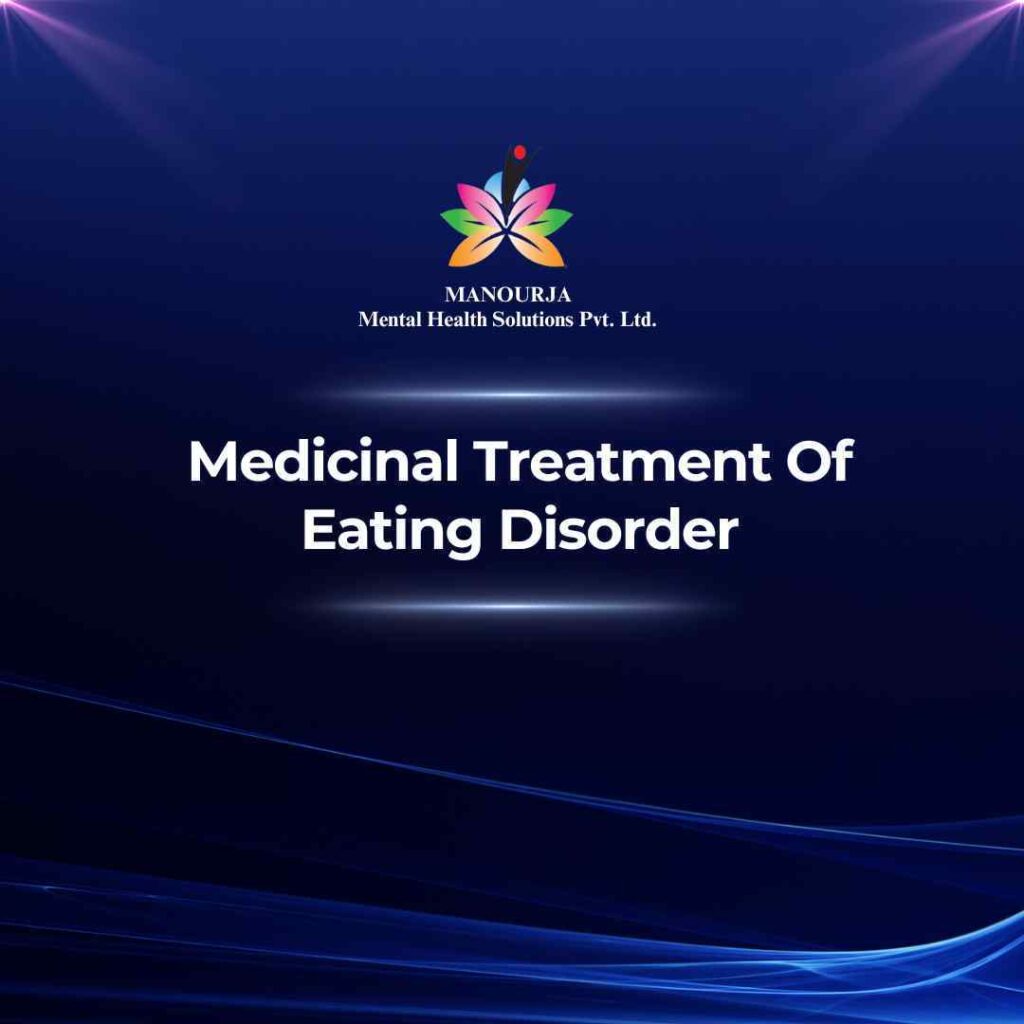Medicinal Treatment of Eating Disorder

Medicinal treatment for eating disorders can vary depending on the type and severity of the disorder. While psychotherapy and nutritional counseling are crucial components of treatment, medications can also play an important role in managing symptoms and addressing comorbid conditions. Here’s an overview of the medicinal treatment options for different eating disorders:
Medications for Anorexia Nervosa
While there are no medications specifically approved to treat anorexia nervosa, some drugs may be used off-label to help address symptoms and related psychological issues:
- Antidepressants: Medications like selective serotonin reuptake inhibitors (SSRIs) are often used to treat underlying depression and anxiety in individuals with anorexia.
- Antipsychotics: In some cases, atypical antipsychotics such as olanzapine may be prescribed to help increase weight gain and decrease obsessive thoughts about weight and diet.
Medications for Bulimia Nervosa
Medicinal treatments for bulimia nervosa are more established compared to anorexia nervosa:
- Antidepressants: SSRIs, particularly fluoxetine (Prozac), are FDA-approved for treating bulimia. These can help reduce the frequency of binge-eating and purging behaviors, as well as treat underlying depression or anxiety.
- Other SSRIs and SNRIs (Serotonin-Norepinephrine Reuptake Inhibitors): Medications like sertraline (Zoloft) and venlafaxine (Effexor) might also be used to help control symptoms.
Medications for Binge-Eating Disorder
Treatment for binge-eating disorder often involves medications that can help control the compulsion to binge:
- Stimulants: Lisdexamfetamine (Vyvanse) is the first FDA-approved drug specifically for moderate to severe binge eating disorder in adults. It helps reduce the number of binge eating days.
- Antidepressants: To help manage symptoms of depression and reduce binge eating episodes.
- Antiepileptic drugs: Topiramate (Topamax), an anticonvulsant, has shown effectiveness in reducing binge eating episodes and promoting weight loss, though it can have significant side effects.
Common Considerations
- Side Effects: Medications can have side effects, which need to be carefully considered by healthcare providers. The potential benefits of a medication must outweigh the risks, particularly in disorders like anorexia, where patients may have heightened health risks due to malnutrition.
- Comorbid Conditions: Often, medications are used to treat comorbid conditions such as anxiety, depression, or obsessive-compulsive disorder, which are common in individuals with eating disorders.
Monitoring
Due to the complex nature of eating disorders and the risks associated with them, medication treatment should be closely monitored by healthcare professionals. This includes regular follow-ups to assess the effectiveness of the treatment, manage side effects, and make adjustments as necessary.
Medicinal treatment should be considered as part of a comprehensive treatment plan that includes psychological and nutritional interventions, tailored to the individual’s needs. Collaboration among healthcare providers, including psychiatrists, psychologists, and dietitians, is crucial to effectively treat eating disorders.
At MANOURJA, we believe in the transformative power of counseling. Our experienced therapists offer a safe and supportive space where you can explore your thoughts, emotions, and challenges. Through personalized counselling sessions, we’ll work together to develop coping strategies, build resilience, and achieve lasting positive change. Discover the path to a healthier, happier you with MANOURJA counselling services.
MANOURJA Rehabilitation Services
At MANOURJA, we’re dedicated to helping you in rebuild your life, after difficult times. Our rehabilitation services focus on understanding what you need to move forward, whether you’re recovering from addiction, trauma, or any psychological – social challenges. We create personalized plans, that are all about helping you, regain your strength and find hope again. With a caring team by your side, you’ll have the support to make real progress and take steps toward a brighter, healthier future.
